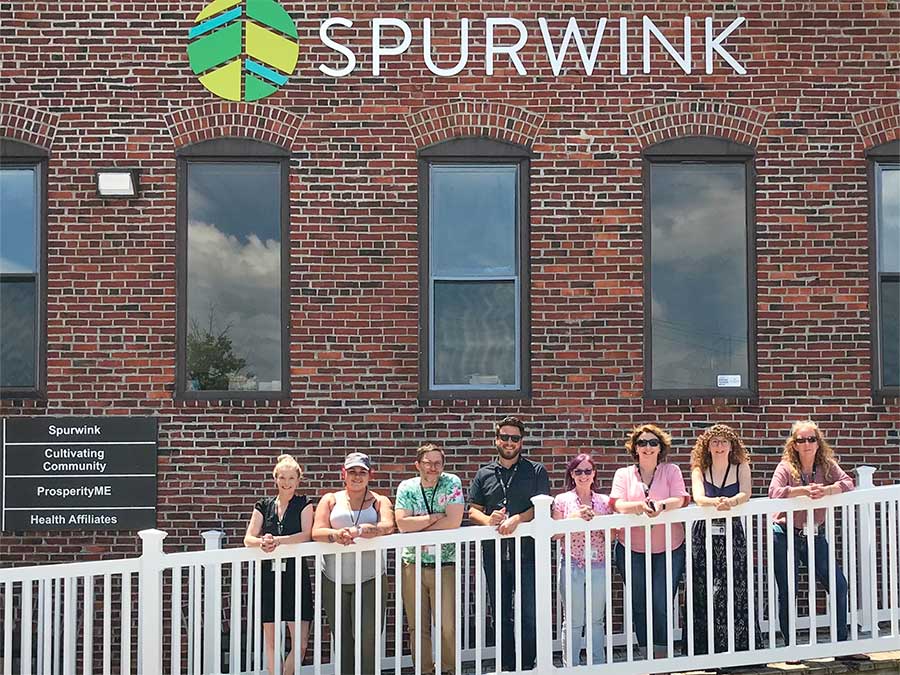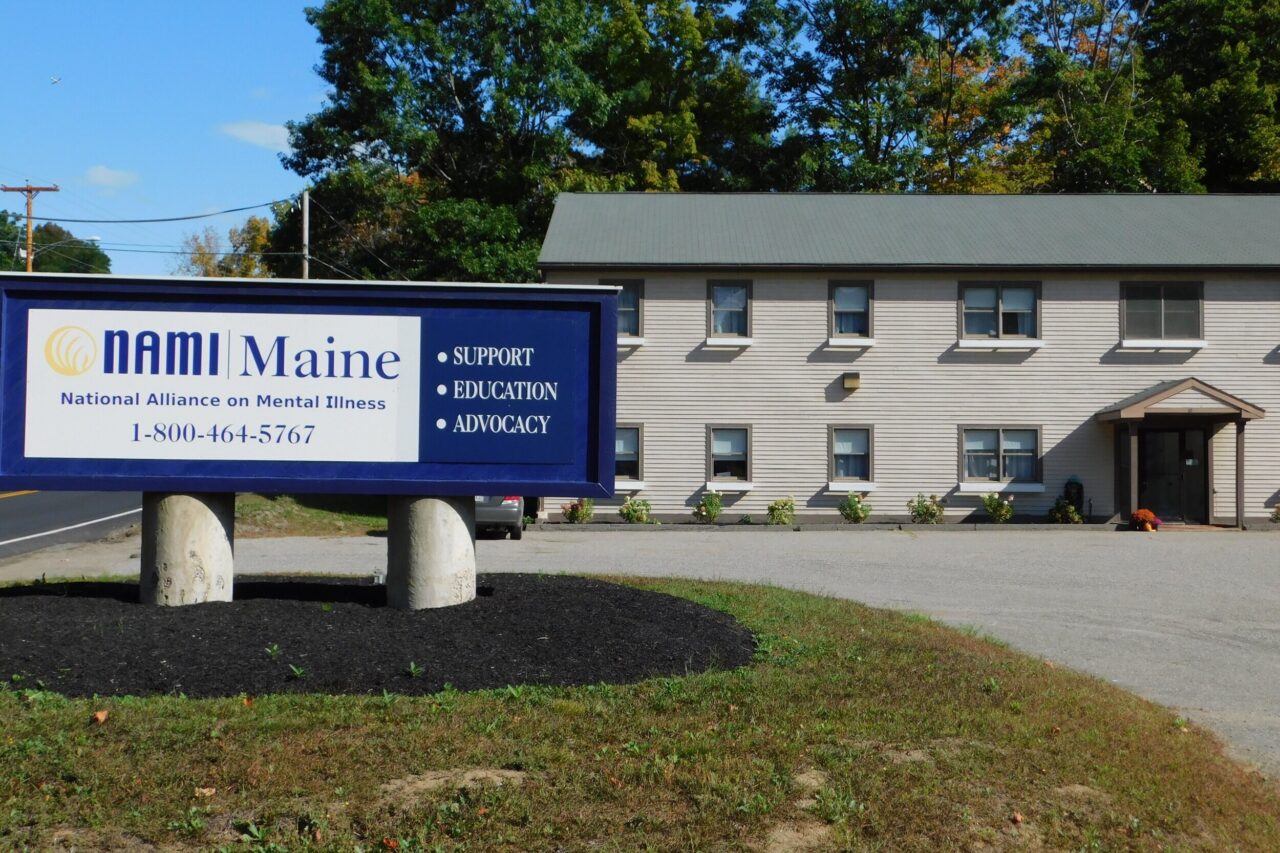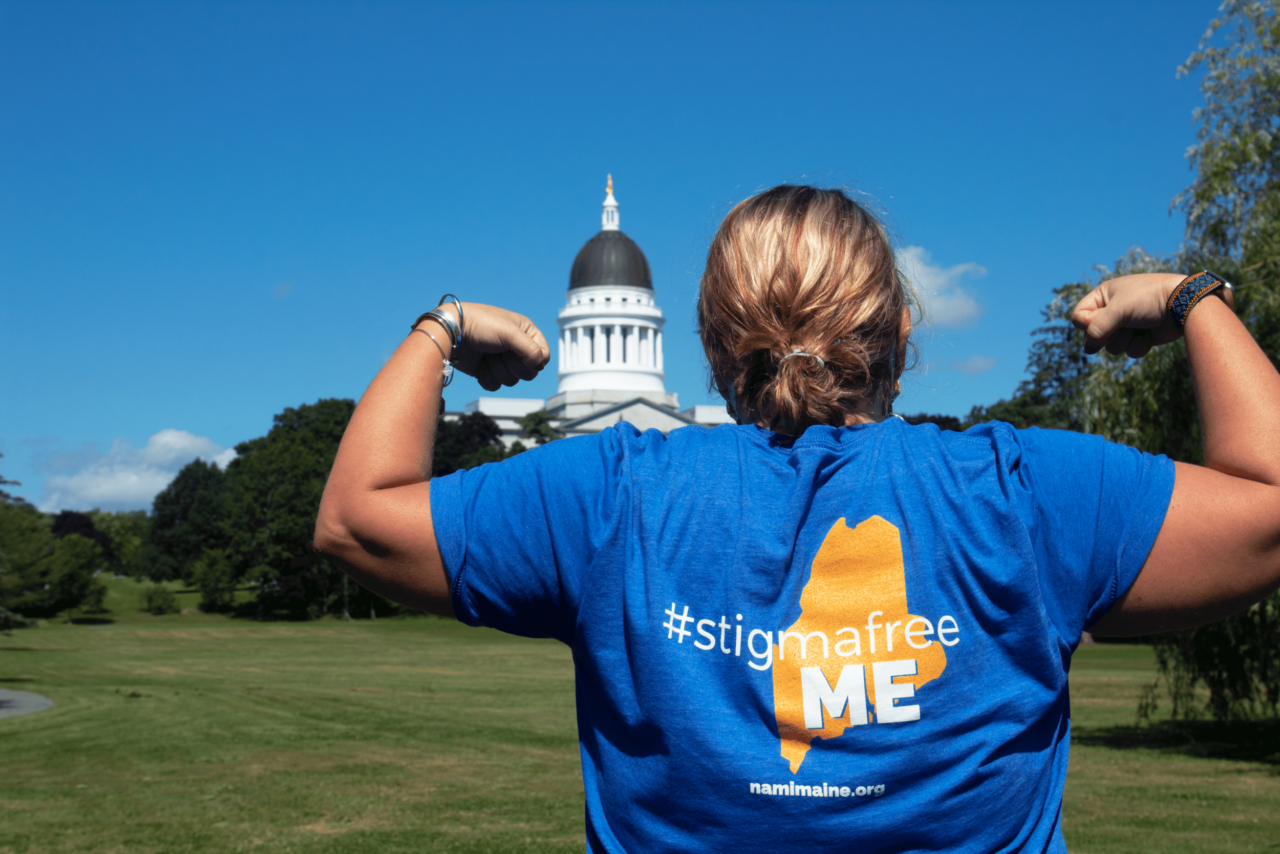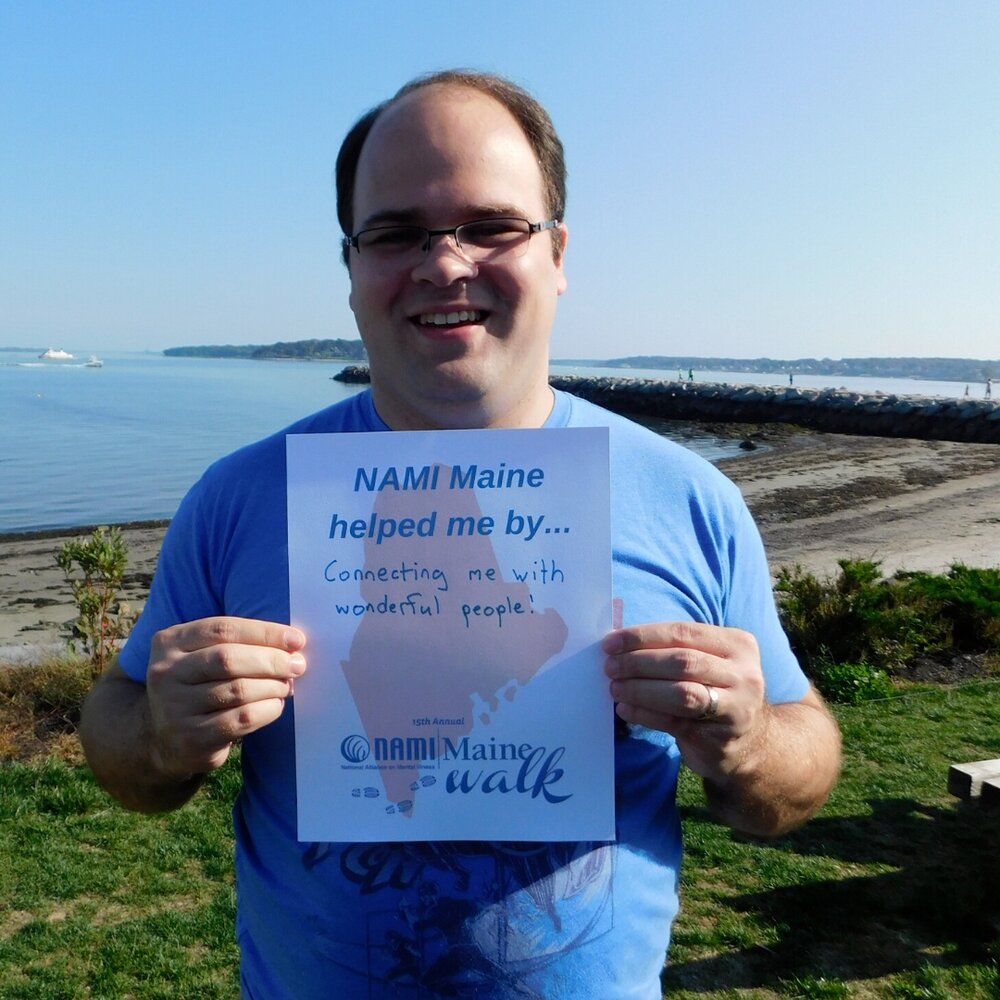Crisis Resources

CALL
National Suicide Prevention Lifeline: 800-273-8255
(press 1 for the Veteran Crisis Line)
Maine Crisis Hotline: 888-568-1112
Trevor Lifeline: 1-866-488-7386
TEXT
Maine Crisis Hotline: 888-568-1112
Crisis Text Line: Text HOME to 741-741
Trevor Project: Text START to 678-678

We Care

Reaching Out for a Loved One ?
If you or someone you know is experiencing a mental health crisis, there are a few different options where help is available…
Maine Crisis Line: (888) 568-1112
The Living Room Crisis Center located at 62 Elm Street, Portland: (207) 535-2096



The Living Room Crisis Center is alternative to the emergency room or mobile crisis. Walk in crisis support is available 7am-7pm seven days a week.
For rapid response to crisis situations 24 hours a day, 7 days a week. A crisis worker will speak with you and discuss a variety of options concerning support, including a crisis assessment. A crisis assessment will be offered with many of these options. A crisis assessment can occur in just about any community setting. A crisis assessment can also occur at a hospital emergency room.
The assessment process will include discussions regarding what is happening currently, if you are having thoughts of suicide or hurting others, along with any previous history. The crisis worker can not only help to make referrals, but also connect you to any community supports that may be helpful.

The crisis assessment will help to determine the best course of action whether that be remaining in the community with referrals to mental health supports, placement in a crisis stabilization unit, or a recommendation for placement in an inpatient mental health facility.
Crisis Unit:
A crisis unit will provide a residential setting where staff will work with your existing providers for a possible medication change, as well as to make referrals for resources that will aid in supporting you, and also provide structured groups to help stabilize your symptoms.
Inpatient:
An inpatient placement will offer group support along with other therapeutic activities. You will also work with a psychiatrist to determine which medications (if any) are right for you. In order to be admitted to an inpatient unit, you will be required to complete a medical screening. This screening is typically completed at an Emergency Room Department.
There are two levels of inpatient hospitals in the State of Maine. There are two State Mental Health Hospitals which typically result from transfers from community or mental health hospitals in the state.

Community hospitals are hospitals that offer multiple services, including a behavioral health unit:
· Pen Bay
· Northern Maine Medical Center
There are two independent Mental Health Hospitals:
There are also two state funded and run hospitals:
· Riverview Psychiatric Center
· Dorothea Dix Psychiatric Center
Other Mental Health and Substance Use Options available to you via Private Pay:
· Averte

Experiencing Stress Related to a Mass Violence Incident?
Click Here for Support Tips
If someone has a weapon or has made a suicide attempt, immediately call 911 for emergency assistance and keep yourself safe.
If you are not in an immediate crisis situation, but you need to talk to someone, you can call:
Maine Intentional Warm Line – 1-866-771-9276
The Intentional Warm Line is available toll-free from anywhere in Maine, 24 hours a day, seven days a week. It is a mental health peer-to-peer phone support line for adults, aged 18 and older, offering mutual conversations with a trained peer specialist who has life experience with mental health recovery. The focus is to encourage and foster recovery, while moving toward wellness and reconnecting with community. Call the Intentional Warm Line 24/7 from anywhere in Maine.

Suicide Prevention
Never ignore these warning signs:
-
Someone threatening to kill themselves
-
Someone looking for a way to carry out a suicide plan
-
Someone talking, texting, writing about killing themselves/suicide
DO NOT LEAVE THE PERSON ALONE!
Take immediate action and call the Maine Crisis Hotline at 1-888-568-1112. This line is available 24 hours a day, 7 days a week and is answered by people trained to assess suicide risk. There is no charge to call.



CALLING 911
-
Let the dispatcher know details of the situation and that this is a mental health crisis, including visible symptoms and underlying diagnoses.
-
Ask if a Crisis Intervention Team trained officer is on duty.
-
Let the dispatcher know if any weapons have been used, and if any weapons are on the premises as well as anything else you think they should know about the situation and the person that might make it safer for everyone.
-
After the immediate crisis is resolved, call us at 800-464-5767. NAMI Maine can help you navigate the system, connect you to resources and to ongoing support.
Q: If I have to call 911 because I’m concerned about a family member, what should I say to the operator?
It’s Important to Prepare. It is especially crucial to inform the 911 dispatcher since officers often have very little time to chat when they arrive at your home. Dispatchers will communicate all relevant information to the officers, so speak openly with the dispatcher about the situation of your loved one and answer their questions honestly. This will allow the dispatcher, and therefore the officer, to have a better idea of the situation and therefore be able to help your loved one in the best way possible.
The more information the dispatcher can tell officers, the more prepared they will be. With more information about the situation, officers have more time to formulate a plan and think about the best way to properly handle the incident. They can do a much better job of keeping everyone safe, and that’s everyone’s main concern in a crisis situation.
Preparing the information you’ll need to tell the 911 operator and practicing what to say can help you ensure a safe outcome if a crisis occurs. If you are prepared before making the call, you might still make some mistakes, but you will get most of the information that is needed correct because of rote memory.
In addition, being able to properly communicate with the dispatchers will help you to calm down. This helps everyone by removing one stressor from the situation.
Gather Information
One important fact to remember is that when we are in a crisis, we frequently don’t think as clearly as we normally would. Fear and anxiety cloud our judgment and scramble our thoughts! Therefore the most important thing when you call is to remain calm and composed. During the NAMI Family-to-Family class, family members frequently tell us that they find the chapter that contains the crisis file to be incredibly helpful in planning before a crisis. We also give our families a portable checklist of what to say to the 911 operator; you can print and keep this in your wallet or save it on your cell phone. Next, write down all of the phone numbers you might need in a crisis. In our Family-to-Family class, we encourage people to write down information such as your loved one’s diagnosis, medications, their address, and anything else that should be communicated, such as if there is a weapon involved or if your loved one has a history of violence. Finally, if it is dark outside, you should turn on the porch light and when law enforcement arrives, answer any questions they ask and follow their directions.

Get Advice from Your Local Law Enforcement
Once you have prepared your crisis file, contact your local station, precinct, city police and/or sheriff and discuss your situation with them. Go over the material prepared and ask them for feedback. I would tell them I want to make sure to relay the information that is important for their safety and that of my loved one if and when a crisis arises.
Train for Crisis
Gathering the basic information beforehand can improve the safety of all of the people involved in a crisis, but training can help even more. Law enforcement spend a lot of time training to properly handle crisis events. Even though they represent a very small proportion of calls for service, if we do not respond properly, the outcome can be disastrous. They practice these skills until they become an automatic response in a crisis. Repetition is critical.
In the same way, family members can train for these situations too. Use the NAMI Family-to-Family crisis file to practice calling the police for your loved one. We would suggest practicing repeatedly until you are able to get 95% of the information correct without looking at your notes. After that, we recommend choosing a regular time to practice: for example, every Wednesday as you drive to work, you can review what you would tell 911 if you need to call.
It can be scary to call the police for help when a loved one is in a mental health crisis. We hope your family can avoid a crisis and you never have to make that call. But if you do, being prepared with the relevant information at your fingertips, and your script memorized, can help keep everyone safe during a crisis.
Want to help?
We are always looking for volunteers!
Whether you have an hour per month or several afternoons per week, we have a way for you to contribute and get involved.
Additional Resources
Click Here for access to NAMI HelpLine’s online directory >
+ National Warmline Directory >
- SAMHSA National Disaster Distress Helpline: A 24/7, free, confidential national helpline that connects you to immediate crisis counseling if you are experiencing emotional distress related to a disaster including mass violence. This includes survivors of the disaster, loved ones of victims, first responders, rescue and recovery workers, faith leaders, local leaders, and parents and caregivers. Call for yourself or for someone else.
- Contact the helpline by phone:
- English: Call or text “talk” to 1-800-985-5990 and press “1”
- Español: Llama o envía un mensaje de texto 1-800-985-5990 presiona “2”
- Deaf and Hard of Hearing ASL: Connect directly with an agent in American Sign Language or call 1-800-985-5990 from your videophone
- Disaster Distress webpage in Other Languages (scroll linked page to find specific languages):
- Contact the helpline by phone:
- Child Mind Institute offers information about signs, symptoms, and treatment for common mental health issues, including trauma, that affect children and teens. The organization’s website also offers a symptom checker to inform parents about possible diagnoses and offer information about possible diagnoses to discuss with a mental health professional.
- Handouts for Survivors is a free downloadable subsection of the Psychological First Aid Manual, features coping strategies, including information about post-disaster emotional and physical reactions and tips on social support, relaxation, parenting after disasters, and self-care for adults.
- International Society for the Study of Trauma and Dissociation (ISSTD) offers a treatment locator for finding therapists and treatment facilities that specialize in treatment of trauma and dissociation, and FAQs about dissociation.
- Substance Abuse and Mental Health Services Administration (SAMHSA) offers a webpage with coping tips for traumatic events and disasters.
- TF-CBT National Therapist Certification Program offers a “Find a Therapist” locator on its website to find a clinician in Trauma-Focused Cognitive Behavioral Therapy (TF-CBT) treatment for people impacted by trauma; search by location, name and other criteria.
- The EMDR International Association (EMDRIA) offers a “Find an EMDR Therapist” locator on its website; search by location, name and other criteria. EMDR therapy is psychotherapy for the treatment of trauma.
- The JED Foundation protects emotional health and prevents suicide for adolescents and young adults; the organization’s website offers a webpage on “How to Cope with Traumatic Events,” including tips on coping and recognizing when trauma requires professional help.
- The National Institutes of Health (NIH) is the lead federal agency for research on mental health conditions. NIMH offers a fact sheet on self-care, including an overview of self-care, tips to get started, information about when to seek professional help and videos on managing stress and anxiety, that may be helpful for coping in the aftermath of a traumatic event. They are also the largest biomedical research agency in the world. NIH offers an emotional wellness toolkit that includes fact sheets on managing emotions, stress reduction, sleep, mindfulness and coping with loss, that may be helpful for coping in the aftermath of a traumatic event.
- The U.S. Department of Veterans Affairs National Center for PTSD offers a webpage with resources for survivors and the public following disaster and mass violence, including information sheets about common reactions, short- and long-term coping strategies, tips on self-care after disasters, tools to help with symptoms following trauma and links to crisis services.









